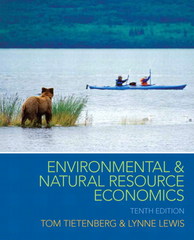Question
Below is the key empirical finding from a recent NBER working paper titled Do consumers exploit precommitment opportunities? Evidence from natural experiments involving liquor consumption
Below is the key empirical finding from a recent NBER working paper titled "Do consumers exploit precommitment opportunities? Evidence from natural experiments involving liquor consumption" by Douglas Bernheim, Jonathan Meer, and Neva Novarro:
We examine a collection of natural experiments in which states expanded allowable Sunday sales hours for liquor. Our results indicate that consumers increase their liquor consumption in response to extended Sunday on-premise sales hours, but not in response to extended off-premise sales hours.
Sales of alcohol at liquor stores are known asoff-premise sales since the alcohol is typically not consumed at the point of sale. In contrast, sales of alcohol at bars and restaurants are known ason-premise sales.
A. The authors report that:
One of the most frequently mentioned strategies for exercising self-control is to limit the availability of a problematic good by not maintaining an easily accessed supply.
Consider a sophisticated time-inconsistent consumer who is conflicted about his consumption of alcohol. He wants to stop drinking, but in the presence of chilled beer, he cannot help himself from over-indulging. Give an example of the
precommitment strategy described by Bernheim, Meer, and Novarro.
b. Laws restricting liquor sales on Sunday are known as "blue laws." Suppose a community with a blue law decides to relax it and permit liquor stores to be open on Sunday (bars and restaurants are still not allowed to serve alcohol). Consider a time-consistentconsumer of alcohol. Will the relaxation of off-premise blue laws affect his overall consumption of alcohol? Why or why not?
c. Now consider a time-inconsistentconsumer of alcohol, currently implementing the precommitment device you described in part (a). Will the relaxation of off-premise blue laws affect his overall consumption of alcohol? Why or why not?
d. Bernheim, Meer, and Novarro find that liquor consumption did not increase as a result of the loosening of off-premise blue laws. What does their result suggest
about the time-consistency or time-inconsistency of alcohol consumers?
Step by Step Solution
There are 3 Steps involved in it
Step: 1

Get Instant Access to Expert-Tailored Solutions
See step-by-step solutions with expert insights and AI powered tools for academic success
Step: 2

Step: 3

Ace Your Homework with AI
Get the answers you need in no time with our AI-driven, step-by-step assistance
Get Started


